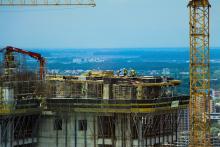Open For Business
Senegal’s Rural Water & Urban Sanitation Sectors Leverage Private Sector Participation to Improve Service
Author: Oumar Diallo
Legislative and Regulatory Texts on PPPs- Senegal
The website includes several documents related to PPPs in the country.
A new route to development: Senegal's toll highway PPP, 2003-2013
By the early 2000s, traffic in Senegal’s capital city of Dakar had become unbearable. A skyrocketing number of vehicles strained the city’s infrastructure, and traffic jams choked not only the major road into and out of town but also the region’s economic growth. A new highway that would ease road congestion had been planned decades earlier but had been shelved because of the cost, complexity, and difficulty of financing. Abdoulaye Wade, elected president in 2000, sought a new solution: a public–private partnership.
Senegal’s Rural Water & Urban Sanitation Sectors Leverage Private Sector Participation to Improve Service
An exciting shift is happening in Senegal’s water and sanitation sectors. Long lauded for its successful urban water Public Private Partnership (PPP), which began in 1996, Senegal is now seeking Private Sector Participation (PSP) in its rural water and urban/peri-urban sanitation sectors.
Senegal shifts its thinking: Rural water delivery moves to private operators
Overnight success takes years, as the saying goes – and that’s certainly the case for the delivery of water to rural regions of Senegal. On July 2, 2015, the Government of Senegal celebrated the signing of its first lease (affermage) contract in the rural water sector, the result of a partnership that marks a significant and promising shift in rural water management for the country. This success in Senegal was years in the making, dating back about 15 years to the start of Senegal’s reform process.
Summary of Benchmarking PPP Procurement 2017 in Senegal - PPP
Procuring Infrastructure Public-Private Partnerships 2018 is designed to help governments improve their PPP regulatory quality. By benchmarking the regulatory frameworks of economies around the world against internationally recognized good practices in procuring PPPs, this assessment identifies areas for improvement in the preparation, procurement, and management of PPPs.
PPP Toolkit, Senegal
Ce site a pour objet de présenter les modalités de mise en œuvre de partenariats public-privé (PPP) au Sénégal. Il est destiné aux services de l’État, aux collectivités locales, aux investisseurs privés nationaux ou internationaux et à toute personne souhaitant s’informer sur de tels projets.

